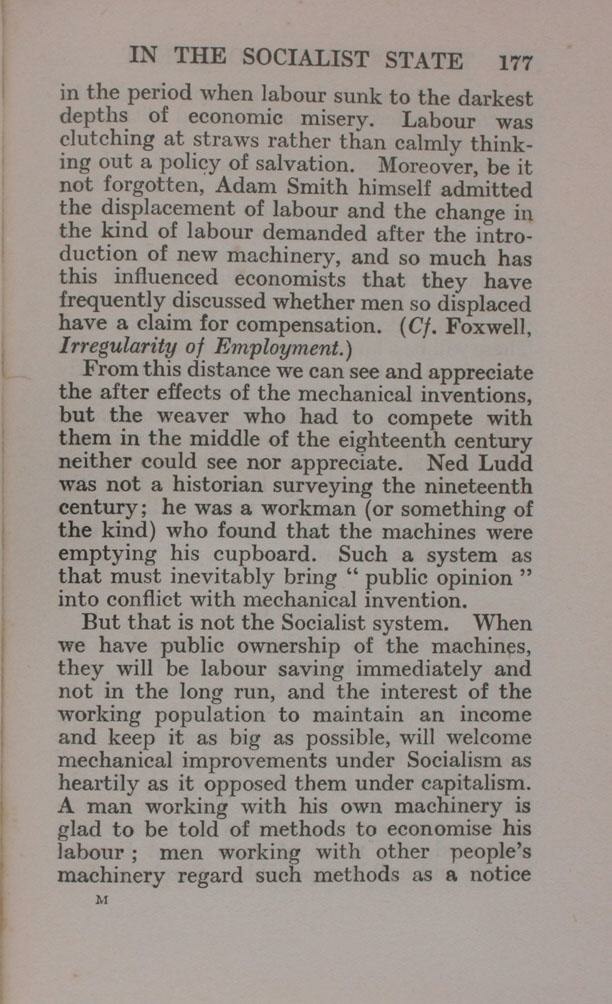in the period when labour sunk to the darkest depths of economic misery. Labour was clutching at straws rather than calmly thinking out a policy of salvation. Moreover, be it not forgotten, Adam Smith himself admitted the displacement of labour and the change in the kind of labour demanded after the introduction of new machinery, and so much has this influenced economists that they have frequently discussed whether men so displaced have a claim for compensation. (Cf. Foxwell, Irregularity of Employment.)
From this distance we can see and appreciate the after effects of the mechanical inventions, but the weaver who had to compete with them in the middle of the eighteenth century neither could see nor appreciate. Ned Ludd was not a historian surveying the nineteenth century; he was a workman (or something of the kind) who found that the machines were emptying his cupboard. Such a system as that must inevitably bring "public opinion" into conflict with mechanical invention.
But that is not the Socialist system. When we have public ownership of the machines, they will be labour saving immediately and not in the long run, and the interest of the working population to maintain an income and keep it as big as possible, will welcome mechanical improvements under Socialism as heartily as it opposed them under capitalism. A man working with his own machinery is glad to be told of methods to economise his labour; men working with other people's machinery regard such methods as a notice
